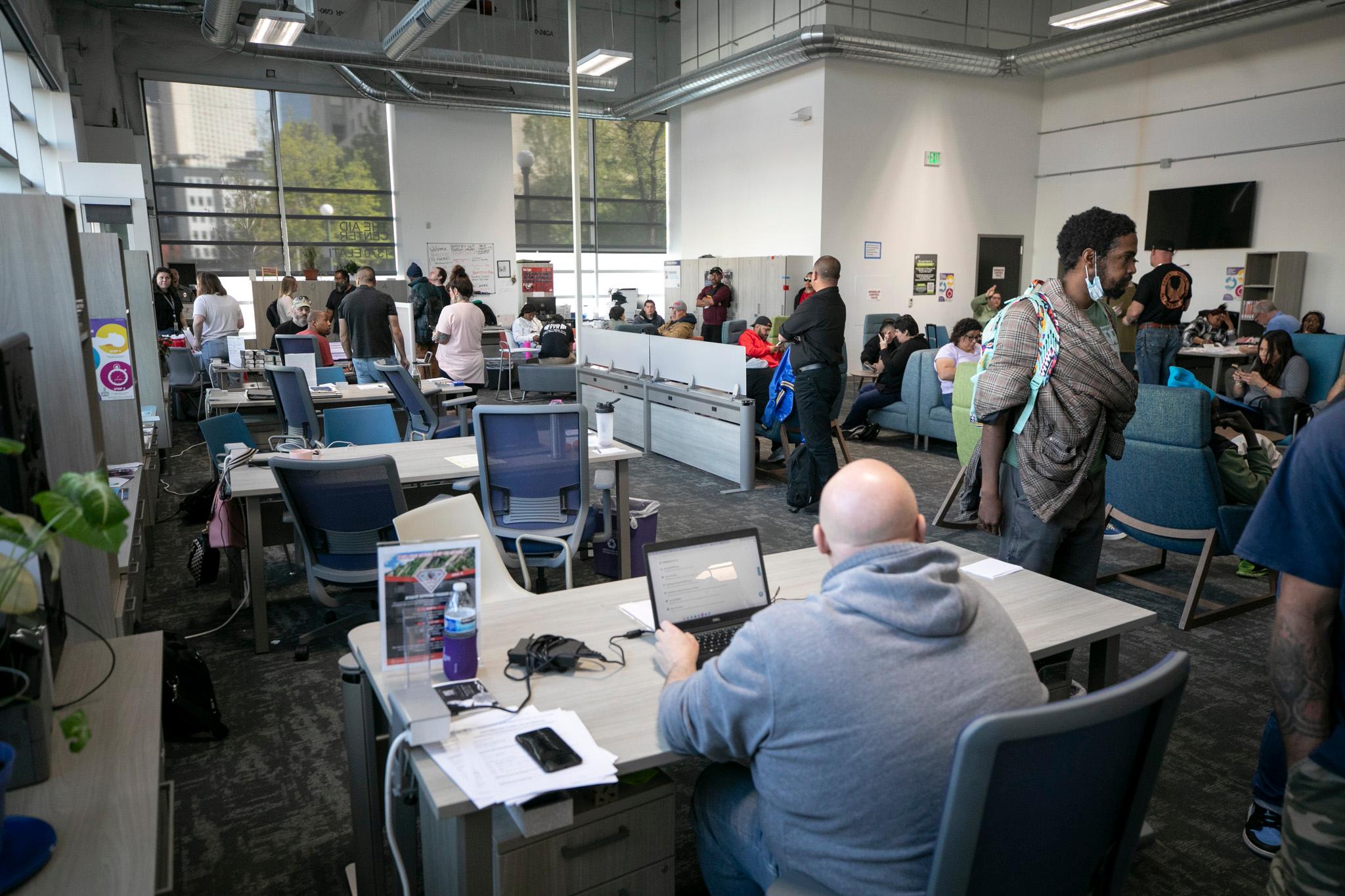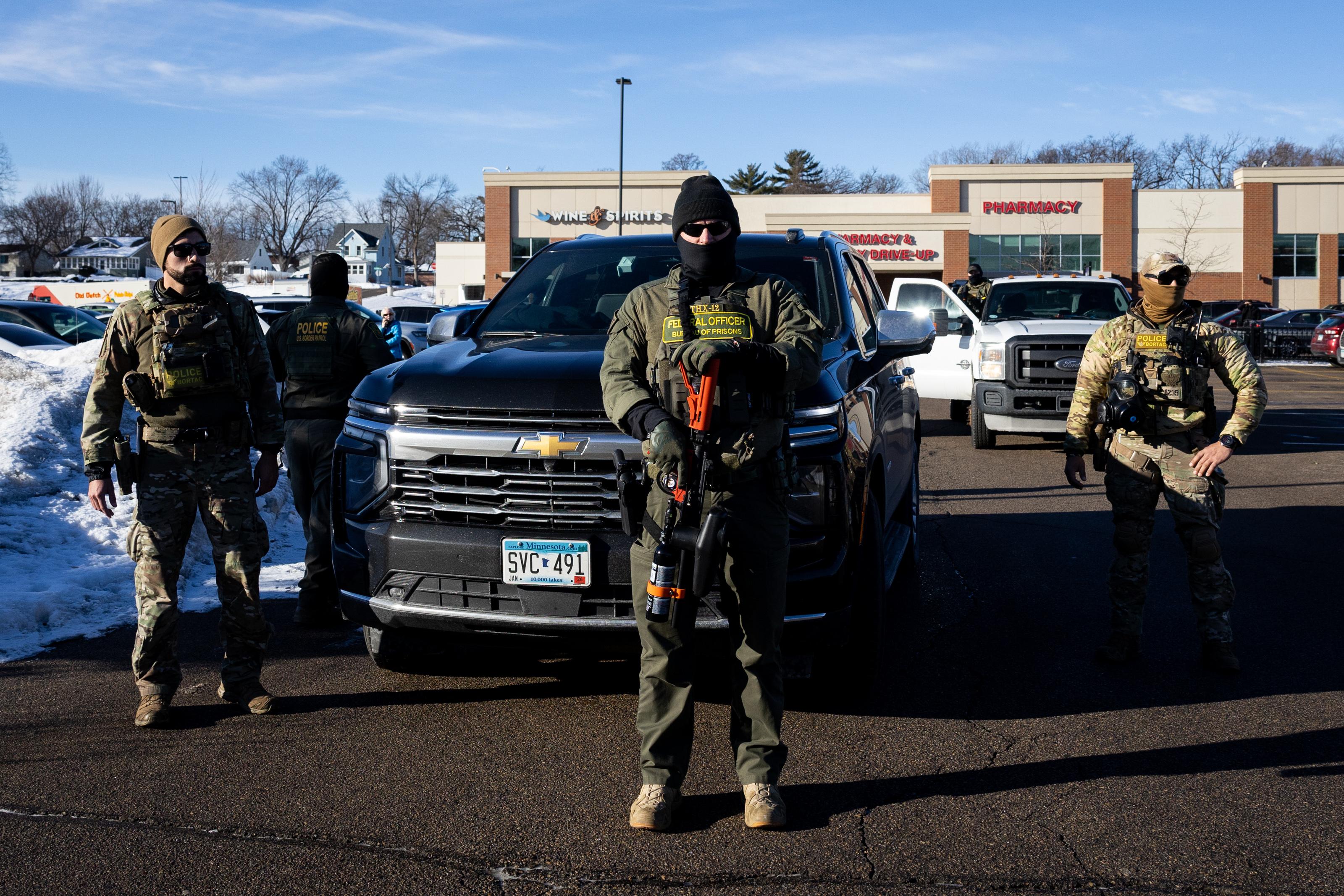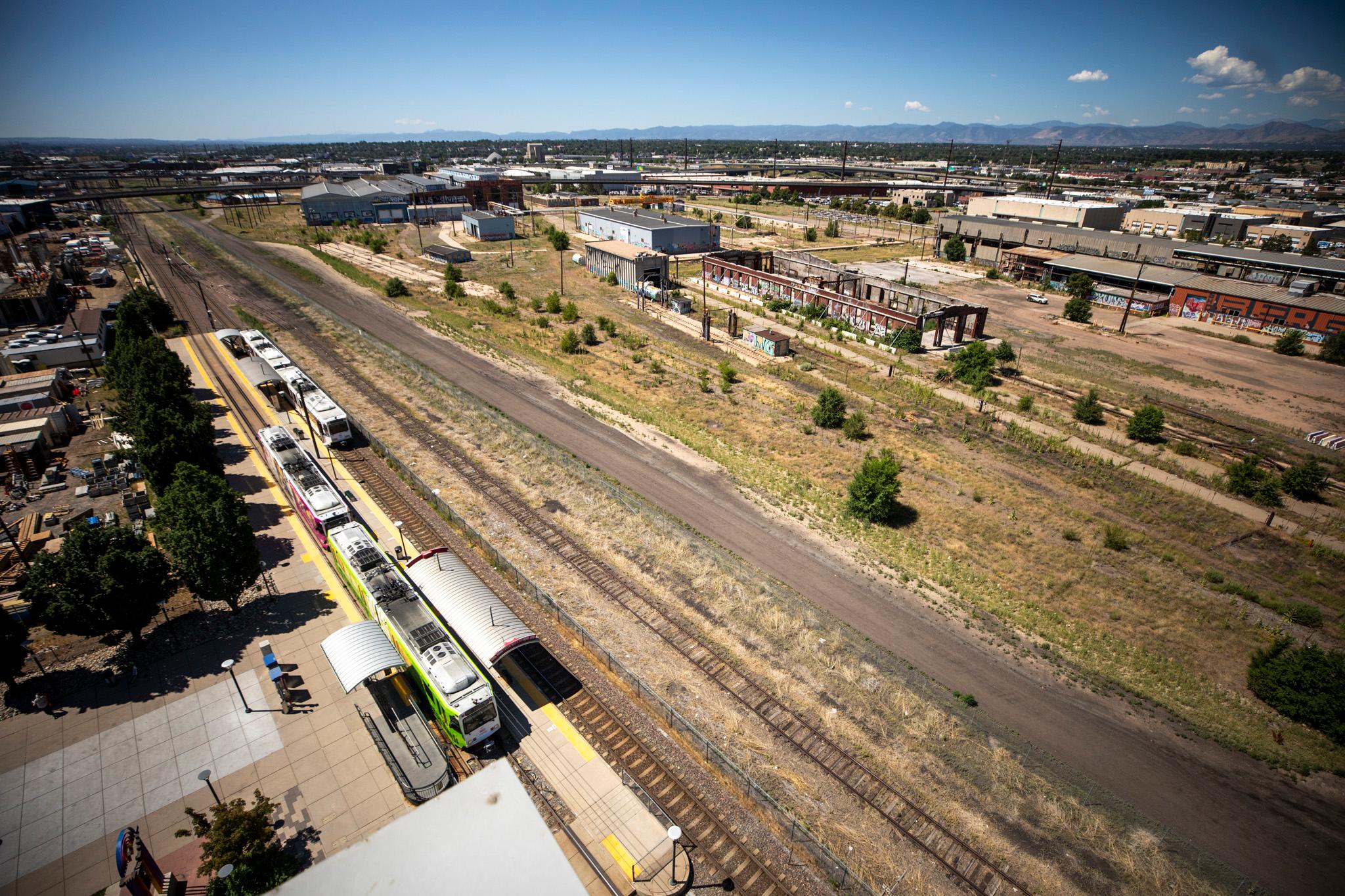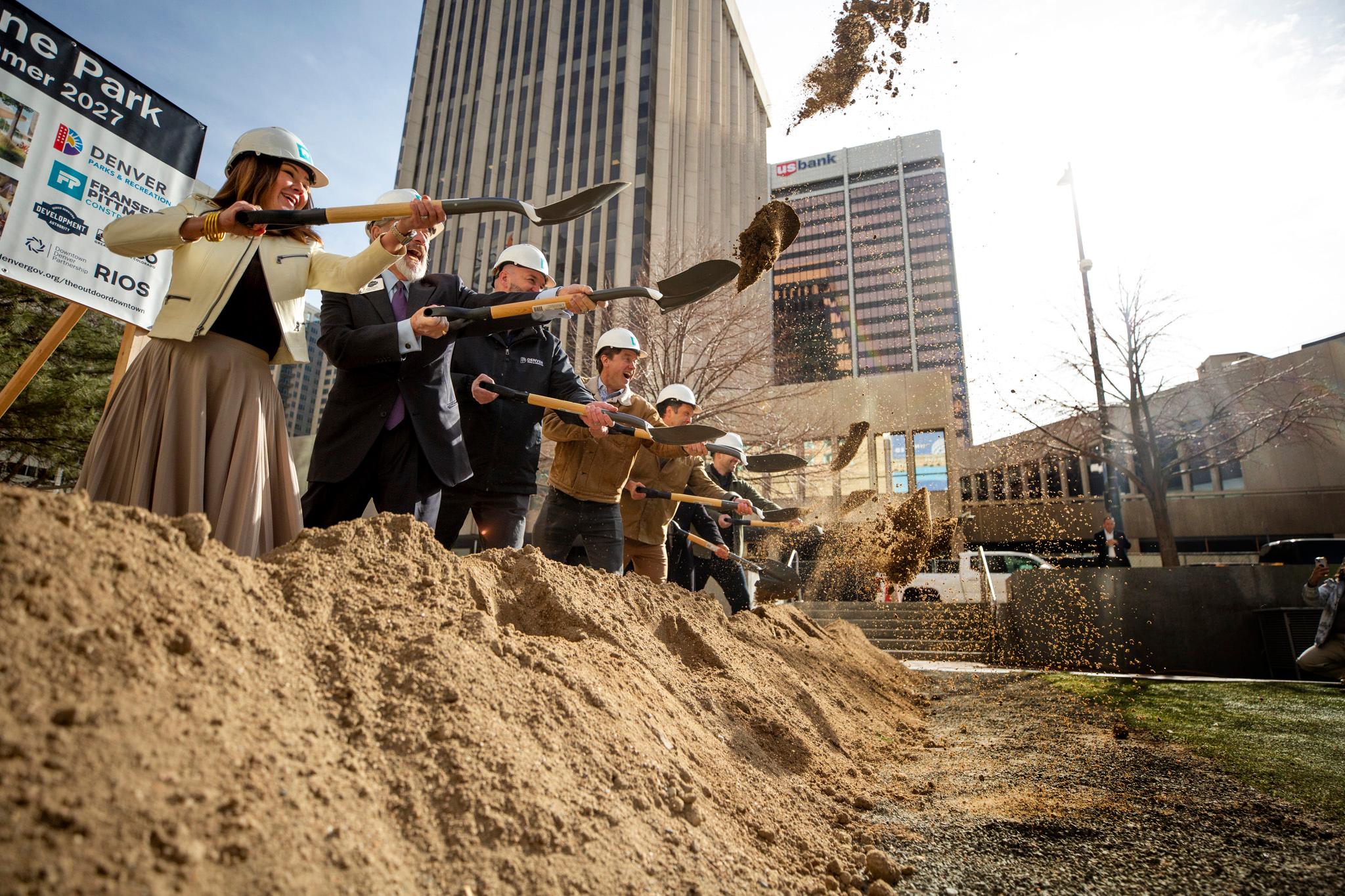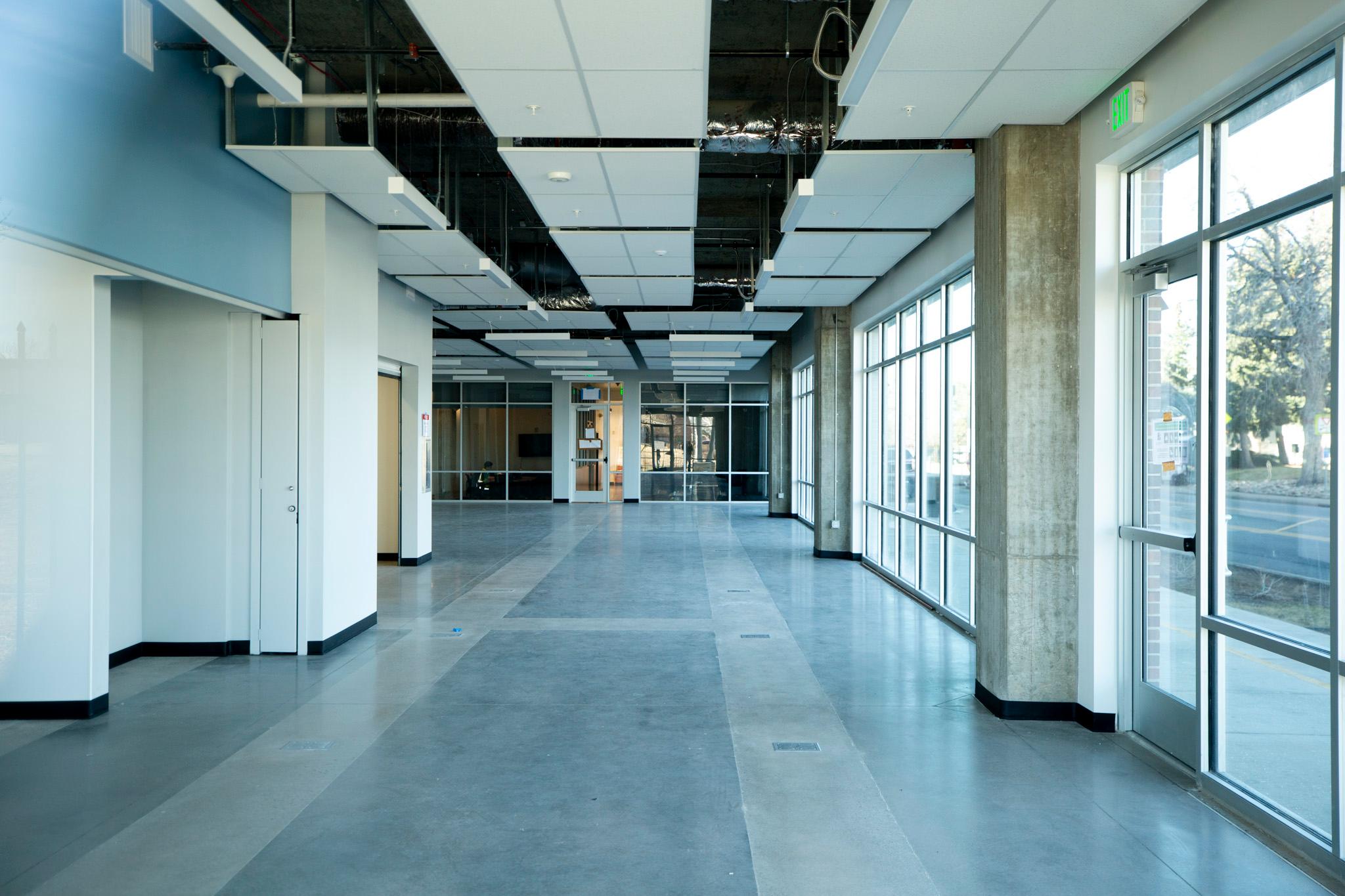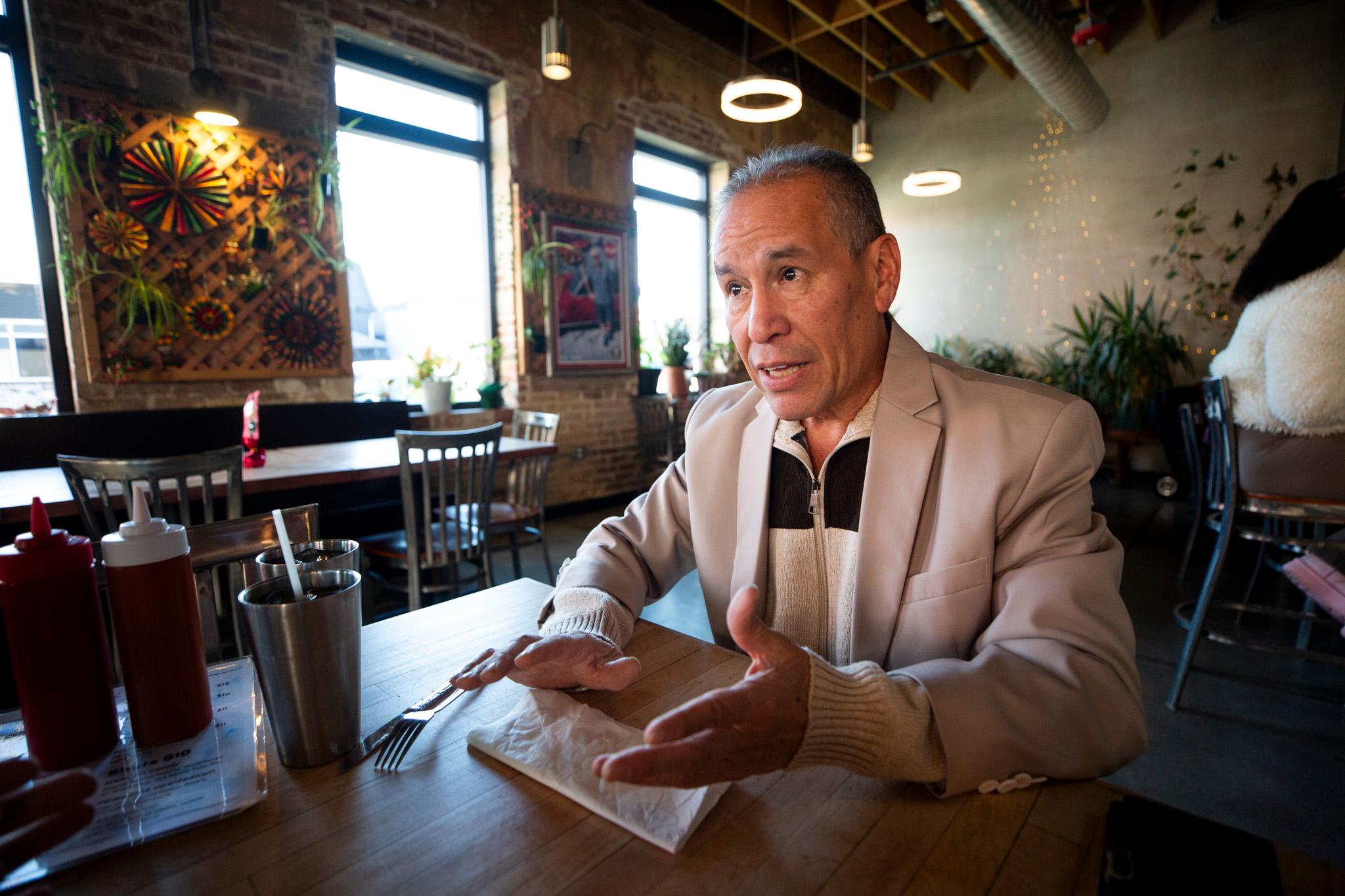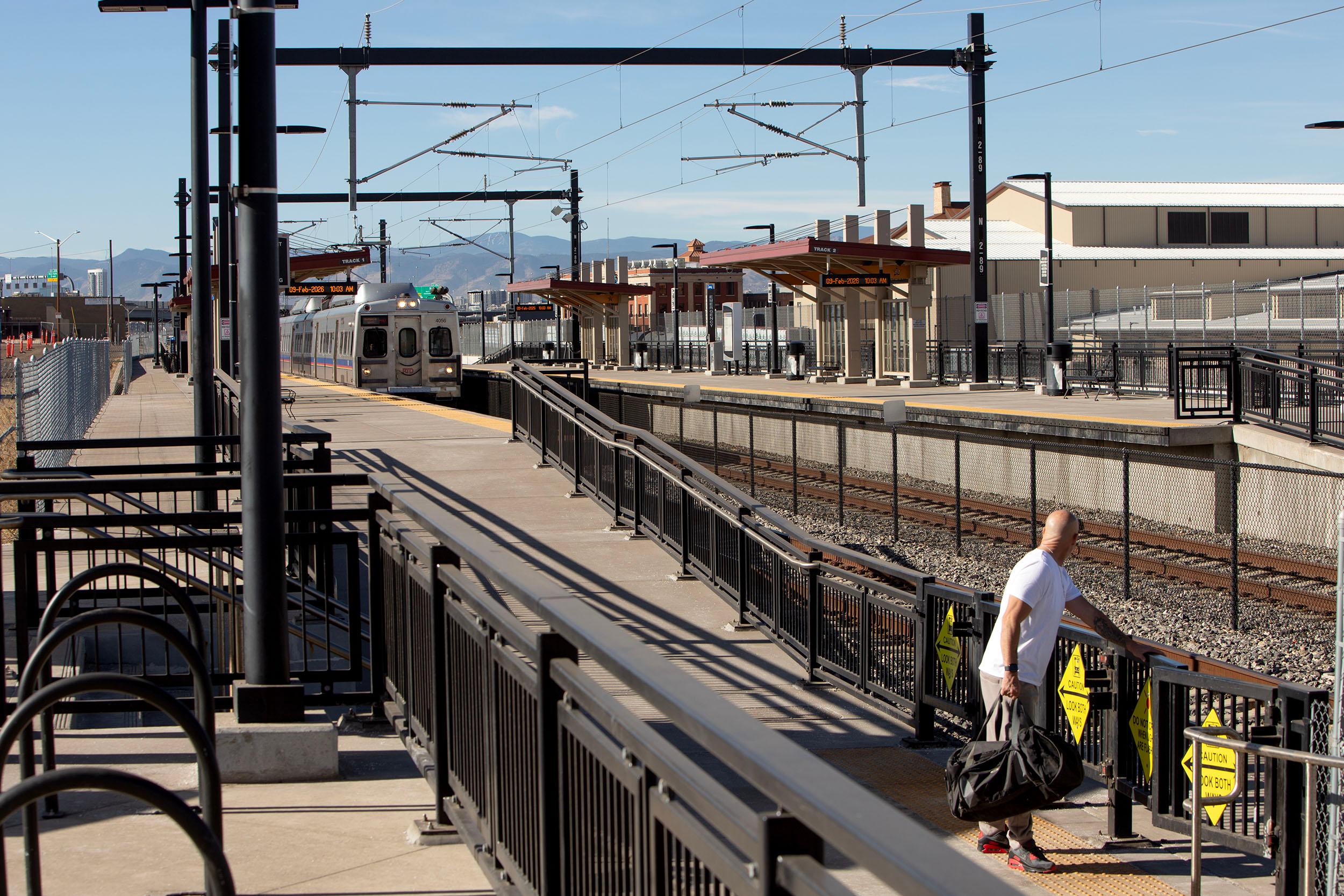Advocates for people dealing with homelessness and addiction are decrying the closure of a resource hub that they say has saved lives and reduced numbers of people sleeping on Denver’s streets.
On Monday, service providers involved with the Assessment, Intake, and Diversion (AID) Center received notice that the drop-in site at 14th Avenue and Elati Street will close. For the last two years, it’s been a venue for nonprofits and government agencies to offer access to Medicaid, subsidized cellphones, referrals to addiction treatment programs, DMV services and more.
The center is set to close as the city grapples with major budget cuts.
“The Center has served as a vital hub—providing access to holistic wraparound services [that] have connected many community members with essential healthcare, legal assistance, and employment support,” Ben Sanders III, chief equity officer of The Mayor’s Office of Social Equity and Innovation, wrote in an email to partners who enabled that work.
“For the first time in over a decade—aside from the pandemic—Denver’s revenues are forecasted to decline in 2026, with a projected budget gap of roughly $200 million. This significant shortfall necessitates difficult decisions, including program reductions, consolidations, and employee layoffs,” he continued.
“Given this challenging fiscal environment, we have made the difficult decision to close the AID Center on June 16. We understand that this announcement is disappointing, and we are grateful for the robust network of service providers ready to fill the gap.”
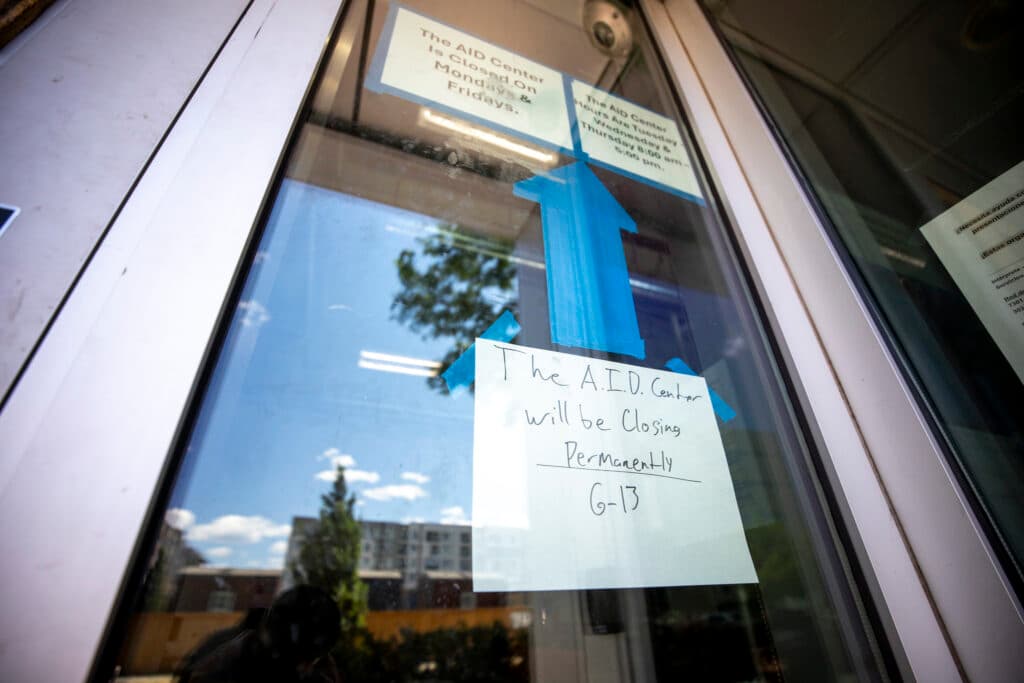
Service providers say this is a major loss.
The AID Center opened in 2023, a project of then-incoming Denver Department of Safety director Armando Saldate. He pitched it as a catchall solution to lower crime and visible drug use at the end of Mayor Michael Hancock’s third term in office.
"The AID Center focuses on the root cause, like what we've talked about, substance misuse, homelessness, physical and mental health issues, education, access to community-based training," Saldate said in 2022. "We will have community partners involved in this center. They are involved already in the standing-up of this."
Two years later, addiction counselors and peer navigators say the center has become an important piece of the city’s safety net.

Matt Bolten is director of judicial programming for Tribe Recovery Homes, a provider of addiction treatment programs, who has been stationed at the AID Center since its doors opened.
“It's one-stop shopping for our unhoused, for people that are getting out of the judicial system, unreleased on pretrial. This place has a baker's dozen of different opportunities, different avenues for people to get recovery, to get help, to get housing, to get birth certificates, IDs, dental work, the list goes on,” he said. “When the weather gets cold, people are here.”
Bolten said the center’s location near Denver’s jail makes it especially important. Drug users are twice as likely to overdose when they’re released from incarceration, he told us, because their bodies’ tolerances have dropped. The AID Center provided a crucial diversion point for people in that position, moving people into sober living homes or into counseling before they have the chance to use again.
“They would come over here, and all of a sudden they would meet me or another recovery company that was in here … and get the help they needed right then and there to keep that from happening,” he said.
Bolten was upset and confused when he heard the facility would close.
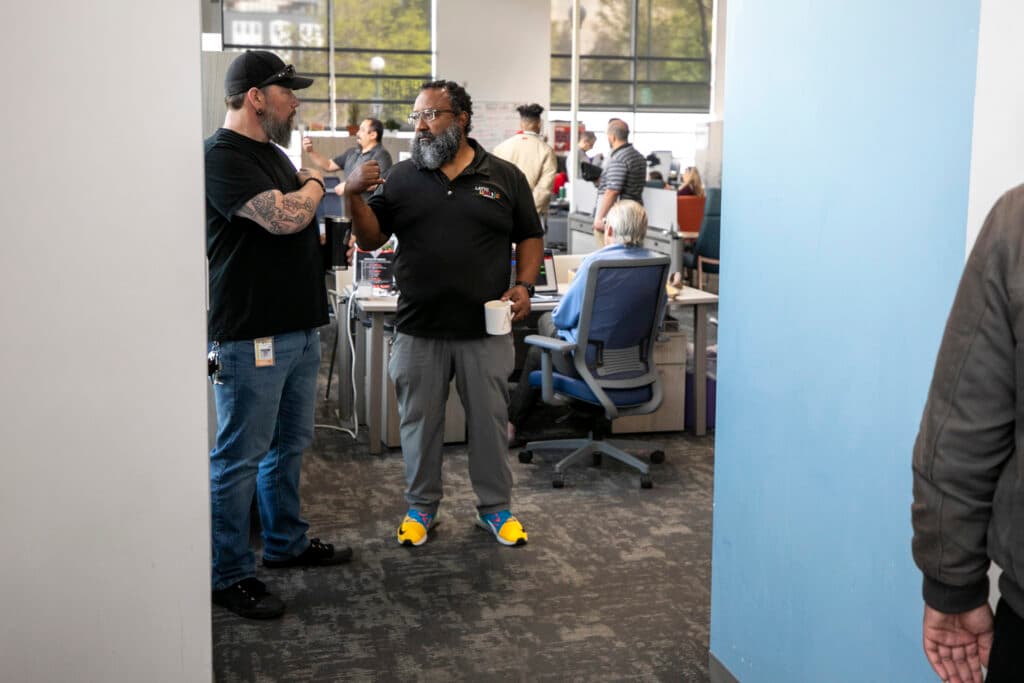
“I've poured two years of my life into this,” he said. “To see it just end is not just devastating for all of us — and the employees and the volunteers and the contractors — but the amount of people from out there that are seeing the sign and going, ‘What the hell? You guys are closing? Where am I supposed to go?’”
Colette Tvedt, Denver’s chief public defender, said the same. The center was a regular location for the city’s “outreach court,” where she and her colleagues helped people deal with open warrants and low-level convictions that might otherwise hold them back from moving out of poverty.
“It's very difficult to articulate how much of a central place that has become for our clients, our community, and our office,” she said.
Her clients use lockers there to store their belongings, and they have important documents like benefit checks sent to mailboxes in the building.
“This is going to be very disruptive for people that rely upon the services of the AID Center every day,” she told us. “It's very sad for the community.”
City officials said the AID Center was struggling to live up to its promise.
The center moved to Ben Sanders’ department in 2024, when Mayor Mike Johnston announced the creation of his Office of Neighborhood Safety.
Sanders told Denverite that he probably could have given more notice of the closure, but he stood by his decision.
“It became very clear that we just didn't have the staff or the resources to really stand up what we wanted and needed to stand up there,” he said.
Though the building was often filled with workers from local nonprofits and agencies, it had, at most, three full-time staffers running the space. Carlon Manuel led the operation, drawing on his own experience with homelessness to inform his work; he declined to comment, since he’s waiting to hear about his job.
Sanders said the city would save almost $600,000 with the closure.
The Office of Social Equity and Innovation is expected to cost $2.4 million this year. Johnston needs to cut general fund expenses by 12%, which would only be $288,000 from OSEI if every office reduced spending evenly.
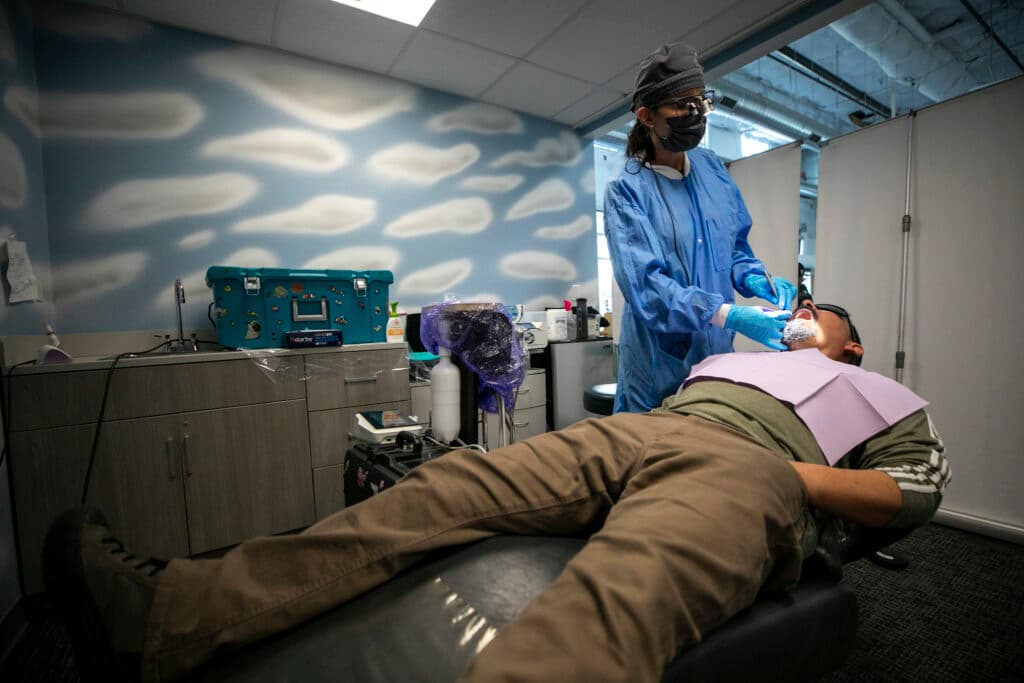
Advocates like Bolten agree there’s a lack of resources, and have been raising that issue for the last two years. Sanders said projections of a major city budget decline mean there will be no possibility of hiring more people to solve the problem.
“If we could fund the AID Center to fulfill that vision, we'd love to. We've not been able to do that,” he said.
But he emphasized that the services housed in the building are not going away — just their centralized location. He added that Mayor Johnston’s All In Mile High and Roads to Recovery programs didn’t exist when the AID Center opened. Sanders said the mayor's investments in citywide projects have "done a magnificent job" to serve the same populations.
The city also has long-term plans for a potential replacement. Last month, the city purchased an old halfway house in Elyria Swansea that officials said might house an operation similar to the AID Center, but under Roads to Recovery’s purview. That could take years to happen.
Sanders added they’re working out how to continue to provide mailboxes for people who have had them at the center.
Homelessness and addiction are Mayor Johnston’s signature issues, making this move all the more frustrating for some.
Johnston declared a state of emergency over homelessness when he took office in July 2023, a few months after the AID Center opened. It set the tone for his administration’s priorities, as he worked to move people out of sidewalk encampments and into city-managed hotels.
Just this week, officials said the homelessness effort was making unprecedented progress, shrinking unsheltered homelessness faster than perhaps any other city in the nation’s history.
But the data also showed that overall homelessness in the city has continued to rise — demonstrating the challenge of getting people out of homeless shelters and into long-term housing.
Maria Ricchione found a home during Johnston’s tenure. She said outreach workers at the AID Center helped her get financial support that led her out of homelessness and into an apartment last December.
It’s a bad time for the AID Center to close, she said.
“I mean, anyone who has half a brain can see that the number of homeless has increased,” Ricchione told us. “Mayor Johnston, what is his real goal here? Because it's not to help the people who are already on the street.”
Jon Ewing, spokesperson for the mayor, stressed his commitment to homeless services.
“Mayor Johnston greatly values the Office of Social Equity & Innovation and understands the tough realities that went into this decision. While the AID Center will not continue, the resources offered at the site will go on without interruption and OSEI is actively working with its partners right now to ensure a smooth transition, including appropriate outreach and communication to people who are most affected,” he wrote.
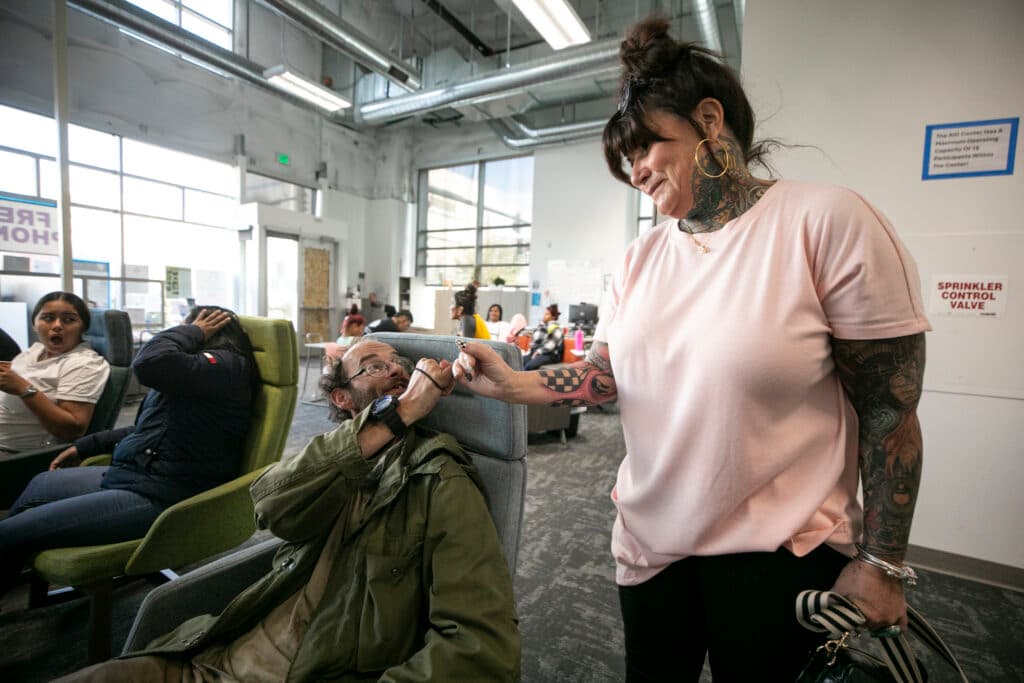
Amy Beck, an advocate who works one-on-one with people living outside, said the closure’s short notice was symptomatic of “a lack of transparency by the mayor's office.”
“If he continues to make cuts without any community input whatsoever, I think he is really going to continue to lose trust with community,” she said. “AID Center is a place that the unhoused community utilized and trusted, and it took a long time to build that trust.”
This story has been updated.

